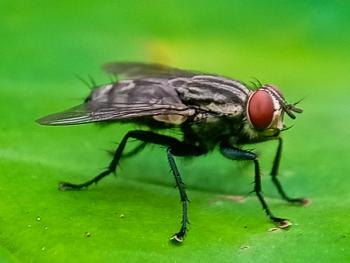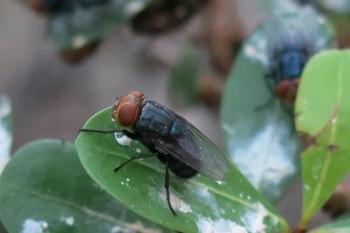
Practical approach to immune-mediated cytopenias (Proceedings)
Dogs with IMHA are usually older than 1 year of age. There does not appear to be a significant gender predisposition. Several breeds have a higher incidence of IMHA, such as cocker spaniels, miniature poodles, old English sheepdogs, and Doberman pinschers. Hereditary erythrocyte disease (PK and PFK deficiency osmotic fragility).
Signalment
Dogs with IMHA are usually older than 1 year of age. There does not appear to be a significant gender predisposition. Several breeds have a higher incidence of IMHA, such as cocker spaniels, miniature poodles, old English sheepdogs, and Doberman pinschers. Hereditary erythrocyte disease (PK and PFK deficiency osmotic fragility).
History
Dogs are usually presented for weakness, lethargy, anorexia, pale mucous membranes, jaundice, or discolored urine. There is a weak association between recent vaccination and IMHA. Assessment of historical tick attachment, drugs (sulfas), toxins (zinc, onions), other concurrent systemic signs may make infectious or neoplastic causes more likely. Some studies suggest a seasonal increase of IMHA cases in the spring and summer. Babesiosis has been associated with a recent dog bite by an American Pit Bull Terrier.
Physical examination
Pallor, weakness, depression, or jaundice. Fever may be present and does not always indicate and infectious etiology. Systolic heart murmur may be present due to decrease viscosity of the blood. Tachycardia and tachypnea may be present due to low oxygen delivery. Animals with concurrent ITP may have petechia or ecchymoses. Ocular exam may reveal uveitis or petechia.
Checklist of tests to consider for anemia
Treament
Once you have diagnosed IMHA, set your client up for the long haul. A treatment commitment of at least one week is important, since that is about how long it takes for the immunosuppressive therapy to be effective. Treatment will continue at least 4-6 months and possibly the rest of the animal's life. The following are tables that describe the way that I treat IMHA. I break them into two categories. These are guidelines only. I realize there is more than one right way to do things, and that each patient requires custom management.
Adjunctive treatments
• Cyclosporine (Atopica®) 10 mg/kg/day orally. Use of the Atopic® and Neoral® formulation results in more stable serum concentrations. Monitoring drug levels is still recommended if side effects or lack of response are observed. Therapeutic serum concentrations are 200-400ng/ml. Many people use as a first choice treatment for complicated IMHA cases.
• Mycophenolate mofetil (Cellcept®) 10-20mg/kg PO BID. Very little information in veterinary medicine for use in IMHA/ITP, but early experiences are promising.
• Human gamma globulin 0.5-1.0 gram/kg intravenously over 4-12 hours. May be repeated within 48 Hrs.
• Leflunomide 2-4 mg/kg/day. Used to be very expensive treatment that has shown some efficacy for the treatment of immune mediated disease. Just went generic is much cheaper now.
• Cyclophosphamide Due to reports of decreased survival, I am NOT using or recommending this drug for IMHA.
• Splenectomy Absolute "last resort" for me. I have never performed a splenectomy for IMHA. Some recent studies may show benefit. Make sure that these patients do not have infectious diseases (especially Babesia) before doing this.
• Plasmapheresis Special facilities and exorbitantly wealthy clients required, with unknown benefits.
Supportive Therapy
• Intravenous fluid therapy: IV fluid therapy should be avoided if possible since IV catheterization increases the risk of thromboembolism.
• Blood transfusion: I don't have a "magic" number as to when I will administer a transfusion. I base it on clinical signs and the rate at which the PCV is dropping. Ideally, cross-matched blood will be administered, but at a minimum, donors should be screened for infectious diseases.
• Oxyglobin®: Polymerized bovine hemoglobin. Can be given safely without cross matching. Interferes with serum chemistry analysis and total protein measurement. The PCV and RBC count are no longer representative of the animal's oxygen carrying capacity. I monitor the hemoglobin concentration.
• Antibiotics: Antibiotics are not indicated for idiopathic IMHA, but antimicrobials such as doxycycline or imidocarb diproptionate are administered pending the results of infectious disease testing.
• Heparin: While I think that all dogs with IMHA should be on ultra-low-dose aspirin, some dogs may also benefit from heparinization. It is not easy to identify which dogs will benefit or for how long to treat them. Dogs that are hypercoagulable based on thromboelastography are good candidates for heparin. We typically give 300-900 U/kg/day as a CRI with the goal of increasing their APTT 1.5 times their baseline. Recent studies have demonstrated that using individually adjusted heparin dosing based on antifactor Xa activity was associated with improved survival.
• Plavix ®: Plavix should have the same effect as aspirin, but there is less data in veterinary medicine justifying its use over aspirin. The optimal dose has yet to be determined, but 3mg/kg PO Q24 has been shown to reduce platelet aggregation. Some institutions use a loading dose of up to 10mg/kg PO once followed by a maintenance dose.
How I Treat Complicated IMHA
Prognosis:
Newsletter
From exam room tips to practice management insights, get trusted veterinary news delivered straight to your inbox—subscribe to dvm360.





